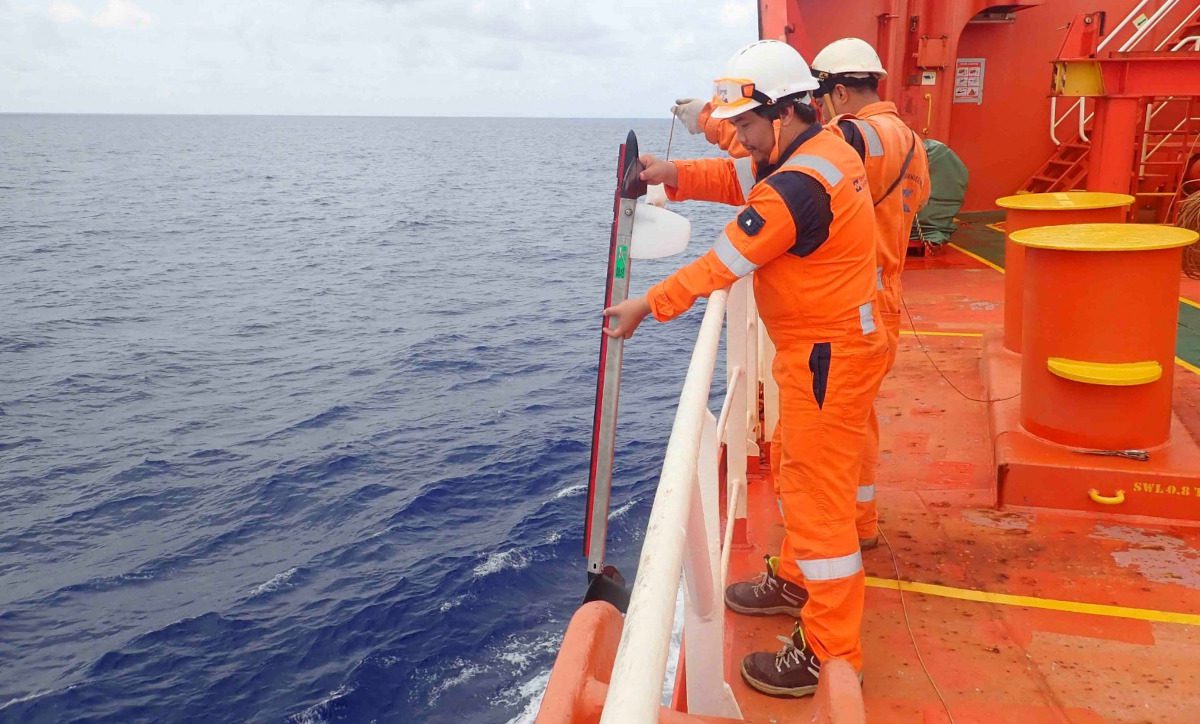
A solution for the in-transit cleaning of hulls (ITCH) – removing biofouling from a ship’s hull during a voyage – has picked up a coveted award.
The prize was among three technology awards handed out at the Singapore Norway Innovation Conference (SNIC) 2023, this year running with the theme “Innovate to Zero”, that is hosted annually in the Lion City by the Norwegian Business Association Singapore (NBAS).
Biofouling removal provides a boost to fuel efficiency and decarbonisation, and Stavanger-based Shipshave’s solution picked up the Most Innovative Proven Technology Award.
Shipshave’s ITCH solution is a semi-autonomous hull-cleaning robot that can be deployed by the crew from a portable winch mounted on the forecastle deck.
The robotic tool harvests propulsion energy to stay attached to the hull and swipe up and down the hull underwater using soft brushes. An integrated video camera on the device enables real-time monitoring of the hull cleaning process and post-cleaning inspection via the ITCH digital application.
Shipshave says the technology can clean between 80-90% of the parallel/vertical area of a Handysize bulker’s hull during sailing in a five-hour operation, with typical opex of less than $250 per cleaning.
Proactive cleaning of the vessel to prevent fouling, which increases viscous resistance and vessel drag in the water, results in better hull performance due to improved hydrodynamics that cuts fuel use. According to the IMO’s GloFouling report, well-maintained hulls can contribute to a 5-25% reduction in GHG emissions.
This means vessel speed can be maintained during transit while still meeting CII requirements, thereby avoiding slow steaming that involves costly derating of the engine, according to Hoejmark.
The technology, initially trialled in 2019, is now being implemented in fleet operations by several major industry players following successful testing on a number of vessels.
Stolt Tankers reported a marked reduction in fuel consumption following an initial trial of ITCH on its vessel Stolt Acer during a voyage from Port Said, Egypt to Algeciras, Spain and has expanded trials of the solution to five more ships.
“We utilize ITCH as a mean to reduce additional drag due to fouling, hence reducing emissions to the atmosphere and improving efficiency of the fleet. It also represents a nice example of collaborative effort among Shipshave and Stolt Tankers,” says Stolt Tankers’ Energy and Conservation Manager, Jose Gonzalez Celis.
Klaveness Combination Carriers is expanding roll-out of the robots across its fleet with five additional units after pilots on four vessels showed fuel efficiency improvements of between 2-5%. Furthermore, Teekay Tankers plans to install Shipshave on four more vessels this year after a successful trial.
Fuel savings
A fuel consumption assessment conducted by DNV found that Shipshave’s technology can deliver fuel savings of around 10% when used regularly.
Shipshave is designed as a proactive solution for hull cleaning as an alternative to retroactive cleaning in ports. This avoids the need for offhire deviations to approved ports for cleaning with associated scheduling and logistics, while also saving time on port turnarounds, said Hoejmark.
There are further environmental benefits as being able to remove and dispose of fouling mid-ocean rather than in port curbs the spread of non-indigenous invasive species to coastal ecosystems. This also prevents deposits of biocide and plastic residues due to erosion of anti-fouling coatings with heavy-duty cleaning in port.
“Our mission is to redefine hull maintenance, enabling the crew to take control over hull performance and thereby improve voyage efficiency,” says Shipshave’s founder Rune Freyer







